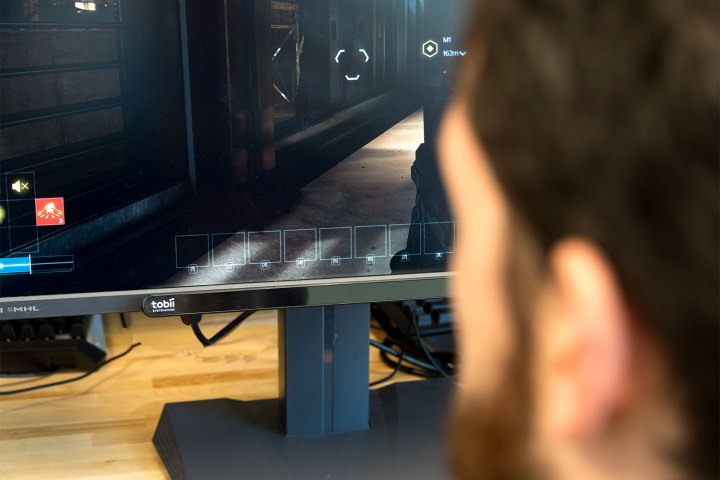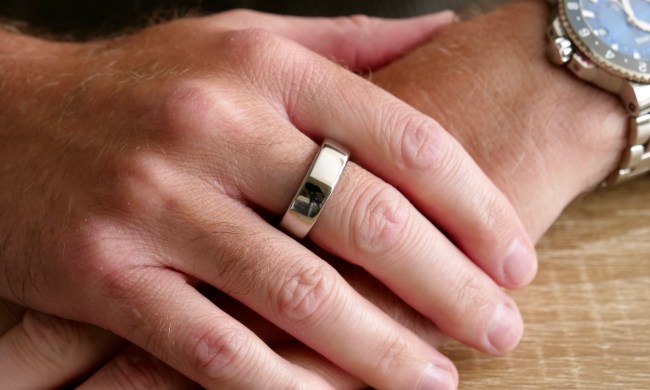
The new round of fundraising is subject to review by the company’s shareholders. If approved, Tobii intends to put it toward “substantial investments in technology and market development,” a market which it characterized is experiencing historic growth. “The interest for eye-tracking in various consumer application have developed at a substantially more rapid pace than we anticipated at the time,” Tobii CEO Henrik Eskilsson said during an address to investors. “At that point, we believed it would take a longer time for eye-tracking to become current for use in smartphones and VR headsets than what see see today.”
Specifically, the company said the cash infusion would give it more “financial flexibility” to carry out acquisitions. It revealed it has inked a deal with a major smartphone manufacturer that will integrate its eye-tracking technology into a future phone, though the company refused to divulge additional details.
Tobii’s eye-tracking system, currently in its sixth generation, relies on a custom-designed processor — or EyeChip, the company calls it — for dedicated processing. It crunches numbers generated by a proprietary EyeCore algorithm, which in turn draws data from an array of infrared illuminators that track a user’s head position, eye gaze, and movements. It is impressively capable — Tobii’s sensors work regardless of physical attributes like pupil size, makeup, or other factors that could inhibit eye-tracking like glasses and contact lenses. And it supports features beyond basic biometrics, like Microsoft’s Windows Hello login.
The tech is integrated into some of Acer’s high-end monitors, Dell’s Alienware-branded devices, and Micro-Star International’s gaming laptops. Perhaps more importantly, though, it has seen a recent uptick among gaming heavyweights. Around 40 games support Tobii devices, including Tom Clancy’s The Division, Deus Ex: Mankind Divided, Assassin’s Creed Syndicate, and Watch Dogs 2, and an additional 60 are expected by the end of 2016.
Tobii’s bent on expansion — the VR and augmented reality industry is expected to hit $150 billion by 2020, according to some projections. And it is chasing the coattails of its competitors. Google recently purchased Silicon Valley-based eye-tracking company Eyefluence, a firm specializing in eye-tracking technology for augmented reality glass and headsets. HTC, which manufacturers the Vive, announced a $10 billion VR venture capital alliance earlier in 2016. At an Oculus developer conference in October, Facebook pledged to inject an additional $250 million in VR content on top of the $250 million the company already invested.
“We are convinced that the time is right to expand our investments and that there is good potential to create value for our shareholders,” Eskilsson said. Judging by the broader industry, that sounds like a safe bet.

